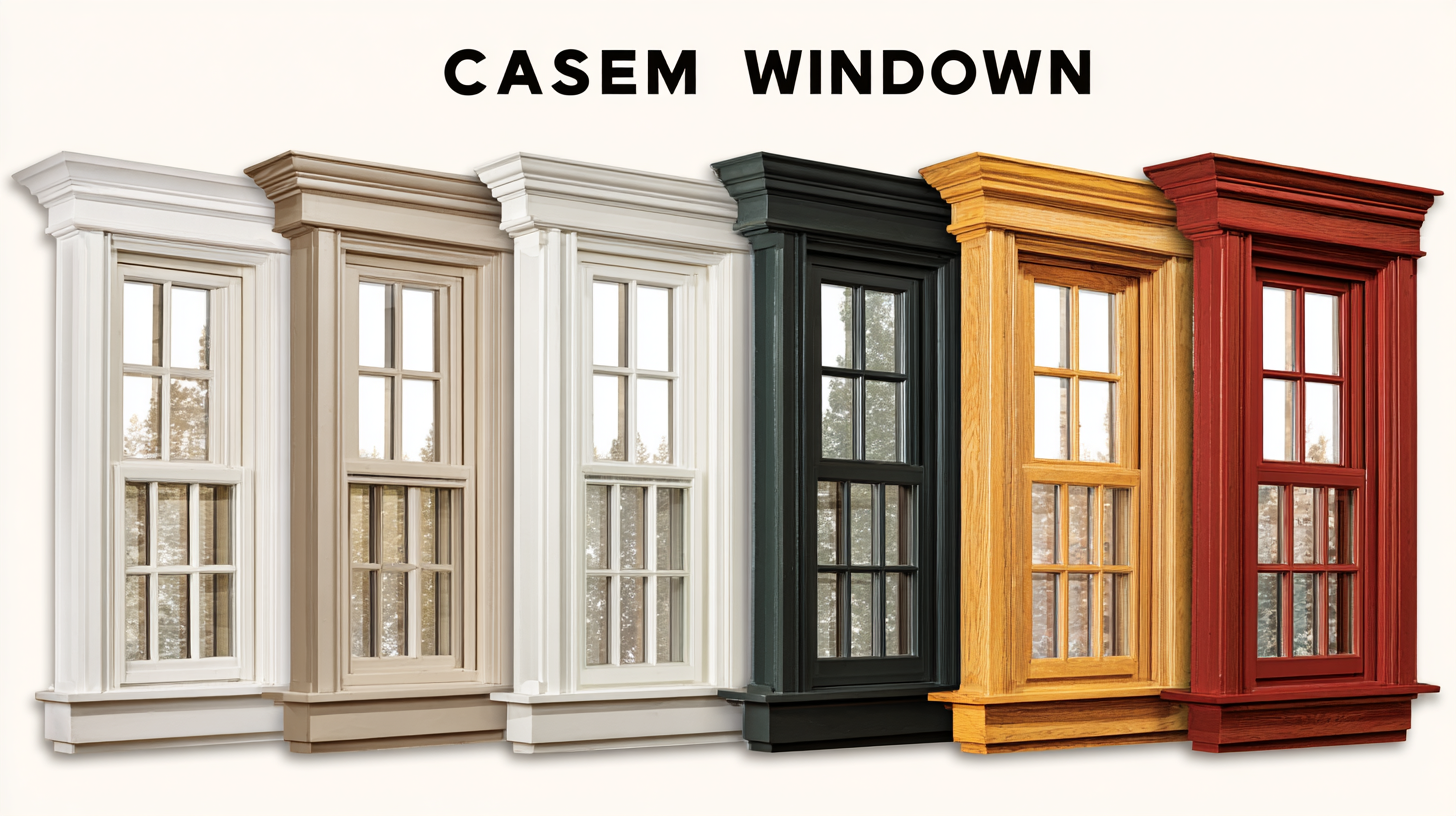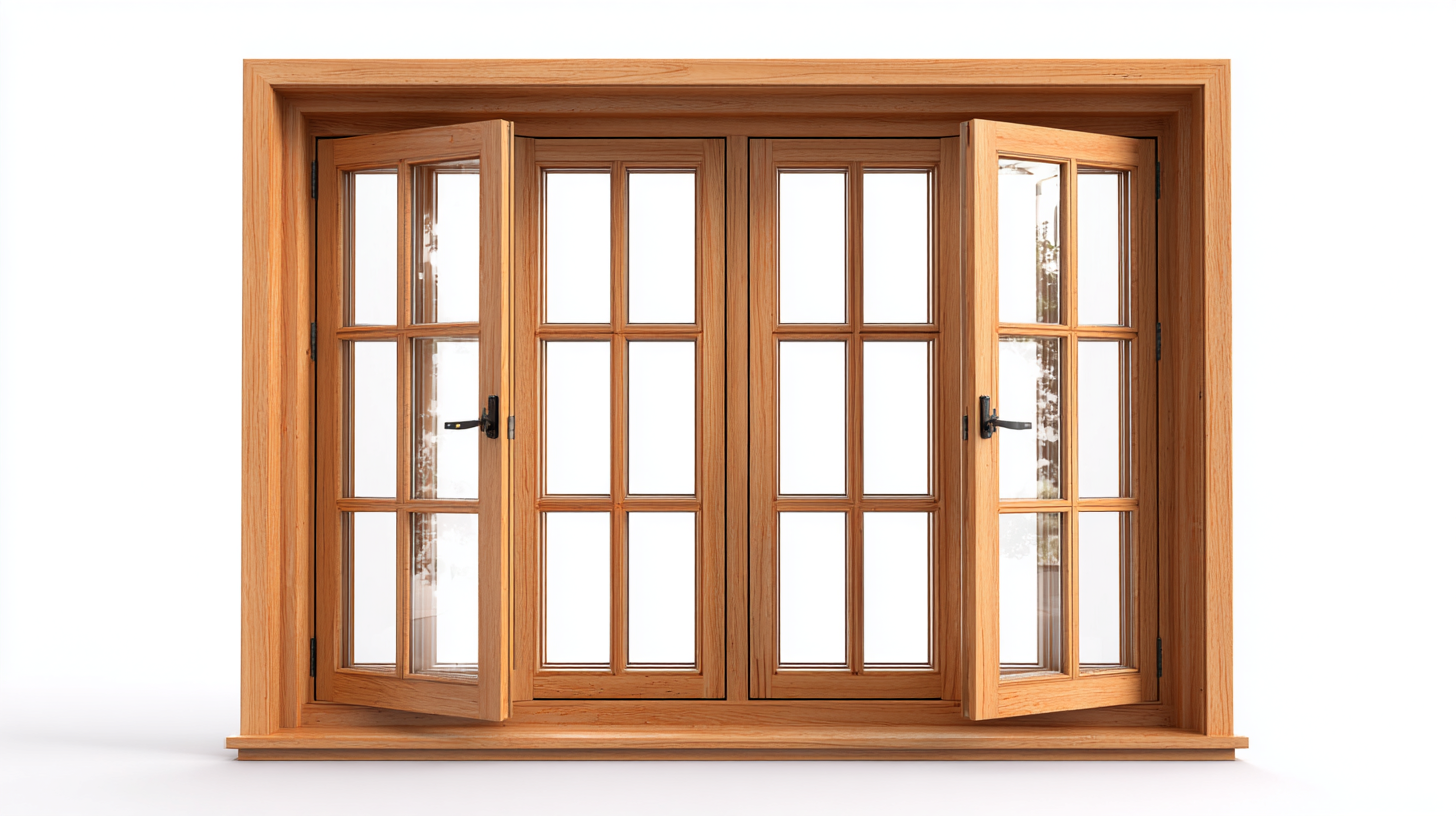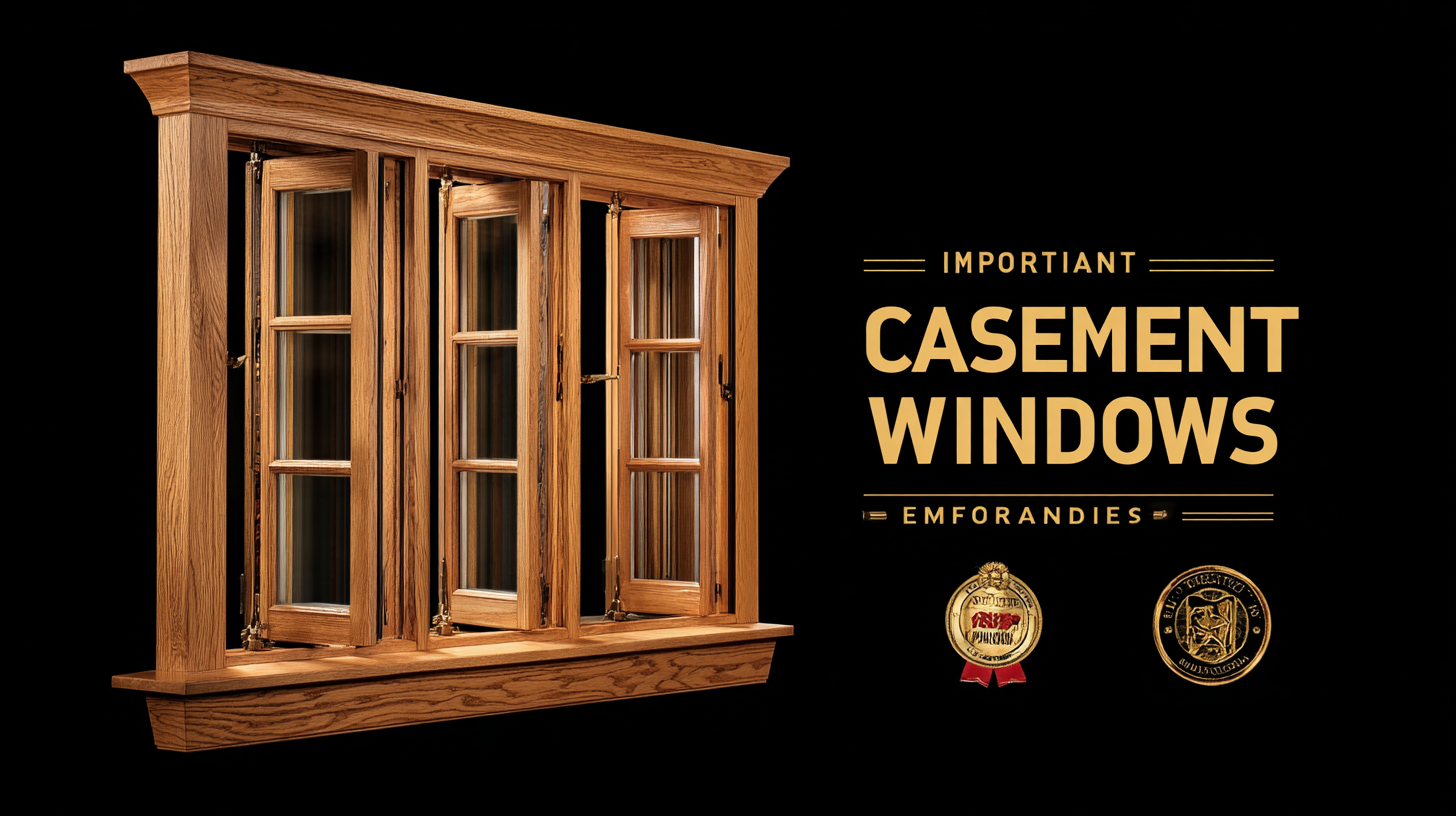 In today's global market, understanding the intricacies of import and export certifications is crucial for manufacturers and distributors of Wood Casement Windows. According to a recent report by the Global Industry Analysts, the global demand for windows and doors, particularly in the residential sector, is projected to reach $320 billion by 2025, with a significant portion driven by the popularity of energy-efficient products like wood casement windows. These certifications not only ensure compliance with international quality standards but also enhance marketability and consumer trust.
In today's global market, understanding the intricacies of import and export certifications is crucial for manufacturers and distributors of Wood Casement Windows. According to a recent report by the Global Industry Analysts, the global demand for windows and doors, particularly in the residential sector, is projected to reach $320 billion by 2025, with a significant portion driven by the popularity of energy-efficient products like wood casement windows. These certifications not only ensure compliance with international quality standards but also enhance marketability and consumer trust.
As regulations vary significantly across regions, navigating the complexities of certification processes—such as ISO, CE, and ENERGY STAR—can be challenging but essential for success. This guide will explore the essential certifications needed for Wood Casement Windows and their impact on global trade, providing valuable insights for industry professionals looking to expand their market reach while ensuring sustainability and quality.
In the highly competitive wood casement window industry, import and export certifications play a crucial role in ensuring product quality and compliance with international standards. According to a report by Freedonia Group, the global demand for wood windows is projected to reach $12 billion by 2026, highlighting the significance of adhering to regulations that govern product safety and environmental impact. Certifications such as the Forest Stewardship Council (FSC) and the American Architectural Manufacturers Association (AAMA) not only reassure consumers about sustainable sourcing practices but also enhance marketability in regions with stringent import laws.
Furthermore, certifications can significantly impact a company's positioning in the global market. Research from Statista shows that around 37% of consumers actively seek sustainable products, influencing their purchasing decisions. For manufacturers and exporters in the wood casement window sector, being certified can lead to increased trust and preference among eco-conscious buyers. Compliance with international certifications can reduce trade barriers, ensuring smoother access to lucrative markets, especially within the European Union, where regulations are particularly rigorous. Thus, investing in proper certifications is not just a regulatory requirement but a strategic move that enhances brand credibility and fosters growth in a burgeoning market.
When exporting wood casement windows globally, understanding key regulatory standards is essential for ensuring compliance and fostering successful trade relationships. Countries often have specific regulations that govern the quality and safety of building materials, including wood windows. For example, adhering to the International Organization for Standardization (ISO) guidelines can help manufacturers meet global benchmarks, guaranteeing that their products are manufactured from sustainable sources and meet durability requirements.

Additionally, it is crucial to be aware of individual countries’ certifications, such as the Forest Stewardship Council (FSC) certification, which certifies that wood products come from responsibly managed forests. Failure to comply with these standards can result in severe penalties, including fines and loss of market access. By navigating these regulatory waters effectively, manufacturers can not only ensure their wood casement windows meet international standards but also appeal to eco-conscious consumers seeking sustainable building solutions in the global market.
The certification process for importing and exporting wood casement windows is a critical step in meeting international standards and ensuring product quality. It typically begins with the manufacturer preparing necessary documentation, including product specifications, safety standards compliance, and environmental impact assessments. According to a recent report by the Global Alliance for Trade Facilitation, proper certification can reduce processing times by up to 30%, allowing companies to bring their products to market more efficiently.
Once the application is submitted, it undergoes a rigorous review process conducted by certifying bodies, which may include both national and international standards like ISO and ANSI. A study from the American National Standards Institute indicates that products that meet certification standards see an average increase in customer trust and satisfaction by 35%. This highlights the importance of adhering to the certification process, as getting approved not only fulfills legal requirements but also enhances marketability in the competitive global arena.
The global market for wood casement windows is increasingly shaped by the need for appropriate import and export certifications, which are vital for meeting market demand and ensuring product quality. Navigating these certifications can be complex, especially when considering distribution channels. According to industry reports, the offline retail market is projected to generate significant revenue by 2025, while online sales are expected to grow at a compound annual growth rate (CAGR) of 14% through 2032. This suggests that manufacturers must strategically choose certifications that appeal to both channels.

Furthermore, geographical trends are influencing certification choices, with regions such as North America and Europe prioritizing sustainability and energy efficiency standards. A report from a leading market research firm indicates that the skin care segment within this space is expected to dominate, making up over 40% of the market share by 2025. As demand for eco-friendly products rises, manufacturers are challenged to select the right certifications that not only meet regulatory requirements but also resonate with environmentally conscious consumers. Understanding these dynamics is crucial for success in the competitive arena of wooden window production and sales.
In the competitive realm of global trade, certifications play a pivotal role in establishing trust between manufacturers and consumers, particularly when it comes to wood casement windows. These certifications not only verify compliance with international standards but also assure buyers of the quality and sustainability of the products. For brands looking to penetrate new markets, showcasing these credentials can significantly enhance their reputation and attract discerning customers who prioritize eco-friendly and ethically sourced materials.
Furthermore, certifications can serve as a powerful marketing tool, providing brands with a unique selling proposition that distinguishes them from competitors. When consumers see recognized certifications on wood casement windows, they are more likely to feel confident in their purchasing decision, knowing that the product has undergone rigorous testing and meets specific criteria. This assurance not only fosters brand loyalty but also encourages repeat business, making certifications an essential element for companies aiming to thrive in the international market. In today’s environmentally conscious society, brands that prioritize compliance and quality through accredited certifications will undoubtedly strengthen their brand value and establish lasting relationships with their global clientele.
| Certification Type | Description | Importance | Market Region |
|---|---|---|---|
| FSC Certification | Forest Stewardship Council certification for sustainable forestry practices. | Increases consumer trust and promotes environmental responsibility. | Global |
| CE Marking | Indicates compliance with European health, safety, and environmental protection standards. | Required for products sold in the European Economic Area. | Europe |
| EPA Certification | Environmental Protection Agency certification for lead-safe practices. | Essential for compliance in residential renovation projects. | United States |
| ISO 9001 | International standard for quality management systems. | Demonstrates commitment to quality, enhancing brand reputation. | Global |
| NFRC Certification | National Fenestration Rating Council certification for energy performance. | Helps consumers make informed energy-efficient choices. | United States |




